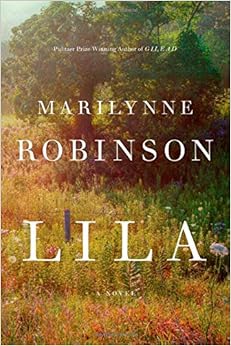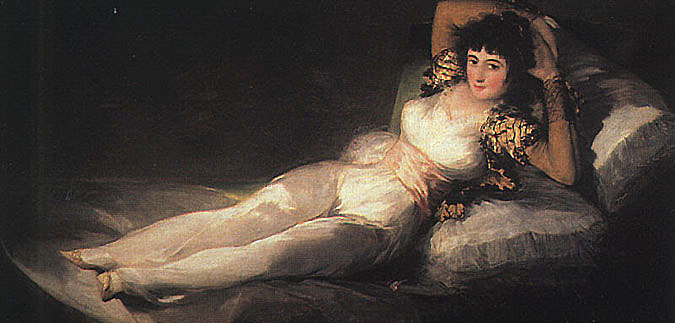I read this book in two days, and would have finished in one if other duties hadn't insisted upon my attention! Wow, you think a subject like the sex scandals of the Catholic Church have been done and dusted, and then you pick up a book like this and realize...where is the outrage??? Yes, your book club should read and discuss this! Also, it's a very gripping and superbly crafted story.
So, what can your book club talk about?
Warp-speed plot summary: It's Ireland, and we're taken by the narrator from his childhood through his time as a priest in both Ireland and Rome as he reflects upon the Church's sex scandals, pondering all the while the culpability of those involved.
Father Odran Yates is our narrator, and you will no doubt spend a lot of time figuring him out. Is he reliable? Is he telling the reader the truth? Is he telling himself the truth? Is he the priest that his best friend Tom accuses him of being? Or is he someone else? Why does Odran join the priesthood, and why does he stay there? What is he getting out of it? Why is he telling us his story?
This may lead you to talk about the role of priests and other religious leaders. What is their appropriate role? What is their value? Are they anachronisms? What makes a good priest?
You'll want to talk about the structure of the book. Does the form carry any meaning to the reader? Is the structure an integral part of what the book is saying? Would this be a completely different book if it were told as a linear narrative? How does the story's structure express the theme of remembering? Yes, you'll definitely want to consider the remembering that Odran is doing. What purpose does it hold? Is it healing? Or does it re-tramautize?
Should there be a collective remembering? Or have we all heard enough about such scandals? Is this an important book to read?
Why do you think this book is titled the way it is? Is there more than one explanation? What about the epigraph? How does this affect your understanding of the book? How does it inform Odran's telling of the story?
One of the themes you'll want to 'dig deep' into is that of how our childhoods shape who we are. And how far can we take this as an excuse for our adult behavior? How long can we blame our parents for how they raised us?
What do you think of Odran's parents? Are they simply doing what any Irish Catholic parents of the 1960's and '70's would do? Are they good parents? Or are they blind, unthinking sheep? And what about all the parents of the boys who were abused? Is it fair to say that no one could have realized what was going on except in hindsight?
What do you think of Odran's sister? Why does he spend so much time telling us about her?
DENIAL. You'll certainly want to discuss this. Who was in denial? Who truly didn't know? Is it even possible that one couldn't know? Or suspect? Or is that how we feel now because of everything we do know, now that the scandal has come to light? You should also talk about the culpability of those who chose or choose to remain in denial.
You'll certainly want to talk about secrecy and its ability to protect those in power. While you're reading the book, count how many times the words "embarrass" and "shame" show up. Talk about the psychology of using those very words by those who should have been experiencing embarrassment and shame--a colossal understatement, I realize--against their victims.
Power. Oh, yes, you will want to discuss this. Who has it. How they get it. And how they keep it. What happens to those who have it. What happens to those who don't.
You'll want to talk about Ireland and its relationship with the Catholic Church. Oh, and you'll want to talk about the Catholic Church. This could, obviously, take up the entire meeting. Talk about institutions in general. Who is in control? The individuals within them or the system itself?
Talk about Odran's experience in Rome. Why do you think he tells us about his time there? What do you make of what Odran tells us about his sexuality?
Is the book excusing anyone? Is it explaining anything? Does it add to your understanding of the sex scandals? Does it make you more empathetic/sympathetic toward anyone? Does it make you angry and want to DO something? Is it indicting anyone? Is it indicting YOU?
WHIRL (What Have I Read Lately) Books is a site for readers to find books for themselves and their book clubs. Liz at Literary Masters runs book groups and literary salons where we "dig deep" into literary treasures.
Saturday, March 21, 2015
Friday, March 13, 2015
National Book Critics Circle Awards: Winners Announced!
I love the National Book Critic Circle Awards! How could I not? On their website under Mission Statement it reads: "The National Book Critics Circle honors outstanding writing and fosters a
national conversation about reading, criticism and literature.
"...fosters a national conversation about reading..." Hm...remind you of anyone you know?
Literary Masters is all about fostering the love of reading and the love of talking about what we read with others!
Congratulations to the winners! For all the info on the NBCC, click here. Make sure to check out how they select the winners.
For a snapshot of the winners in each category, continue reading:
Fiction: Lila by Marilyn Robinson. I can't wait to read this book! (I can't believe I haven't done so yet.)
Autobiography: Can't We Talk About Something More Pleasant? by Roz Chast. For my review of this wonderful, laugh out loud, cry all day, graphic memoir, click here.
Criticism: The Essential Ellen Willis by Ellen Willis
General Nonfiction: The Problem of Slavery in the Age of Emancipation by David Brion Davis
John Leonard Prize for outstanding debut book in any genre: Redeployment by Phil Klay. You know that I am a big fan of this collection of short stories! I will try to post about it sometime soon!
Biography: Tennessee Williams: Mad Pilgrimage of the Flesh by John Lahr. (What a wonderful title!)
Poetry: Citizen: An American Lyric by Claudia Rankine
Ivan Sandrof Lifetime Achievement Award: Toni Morrison (I'm thinking it's time to read another of her wonderful novels!)
Nona Balakian Citation for Excellence in Reviewing: Alexandra Schwartz
"...fosters a national conversation about reading..." Hm...remind you of anyone you know?
Literary Masters is all about fostering the love of reading and the love of talking about what we read with others!
Congratulations to the winners! For all the info on the NBCC, click here. Make sure to check out how they select the winners.
For a snapshot of the winners in each category, continue reading:
Fiction: Lila by Marilyn Robinson. I can't wait to read this book! (I can't believe I haven't done so yet.)
Autobiography: Can't We Talk About Something More Pleasant? by Roz Chast. For my review of this wonderful, laugh out loud, cry all day, graphic memoir, click here.
Criticism: The Essential Ellen Willis by Ellen Willis
General Nonfiction: The Problem of Slavery in the Age of Emancipation by David Brion Davis
John Leonard Prize for outstanding debut book in any genre: Redeployment by Phil Klay. You know that I am a big fan of this collection of short stories! I will try to post about it sometime soon!
Biography: Tennessee Williams: Mad Pilgrimage of the Flesh by John Lahr. (What a wonderful title!)
Poetry: Citizen: An American Lyric by Claudia Rankine
Ivan Sandrof Lifetime Achievement Award: Toni Morrison (I'm thinking it's time to read another of her wonderful novels!)
Nona Balakian Citation for Excellence in Reviewing: Alexandra Schwartz
Tuesday, March 3, 2015
Should Your Book Club Read The House of Mirth by Edith Wharton?
The House of Mirth by Edith Wharton was this season's classic selection for Literary Masters book groups and salons. Most members loved the book, but not all. A few found the writing too dense, too flowery, too old-fashioned. Hm...well, the majority of us loved it and thought it was brilliant. Many members said they can't wait to read more Wharton! So, YES, your book club should read this literary treasure!!!
So, what can your book club discuss? Please note there are some SPOILERS BELOW!!!
SO MUCH!!! but in order to have a reasonable length post, I'll just go over a few topics, just to get you started!
Warp-speed plot summary: It is the Gilded Age in New York City and the stunningly beautiful Lily Bart is running out of time to find a rich husband who will secure her future. Her options are plentiful and dazzling at first, but Lily is holding out. For whom? For what? As the story progresses, Lily's suitors become fewer and much less alluring. Complicating matters is Lily's dire financial situation as well as the rumors swirling about her behavior. Will Lily's Prince Charming arrive in time? Will Lily save herself? If you think this story sounds vapid, you are seriously mistaken! This novel is so layered and nuanced; it will get you thinking--and keep you thinking!
AND DON'T TRY TO CHEAT BY WATCHING THE MOVIE! Part of the pleasure of The House of Mirth is the prose. You WILL want to discuss this. Wharton is witty, ironic, satirical, but best of all she evokes visions in your mind as you read. It's as if scenes are playing out, one after the other. All inspiring writers would do well to study the craft of Edith Wharton! I kept thinking about Jane Austen's writing as I read this novel, and I also thought of the scenic quality of Somerset Maugham's The Painted Veil. It is no wonder that these authors' works are turned into films; they are masters at the "screenplay" style!
There are many interpretations of this novel, so if you want to do some research, you'll find feminist, psychoanalytic, deconstructive, and Marxist readings of it, to name a few. It's not necessary to read any of them, of course; you can simply discuss your own "reading" of House of Mirth, but I am highlighting here that your book club may all "see" the story very differently. That's one of the beauties of the book!
You'll want to "dig deep" into Lily. What motivates her? What does she want and why? Does she even know what she wants? Do her desires change over the course of the novel? Talk about how Lily has been raised and how this has affected her. Talk about the other influences in her life also. Who/what has defined who Lily is?
Is Lily a sympathetic character? The answer to this seems to color a lot of how readers feel about the entire story, so it's a simple but important question. What makes her sympathetic or not? Does she have a moral compass?
You'll want to invite Lily to lie down on the couch! What is going on with her and the decisions she makes? Is she being self-destructive? Why? Is her behavior being motivated by unconscious desires? Is she an early feminist? How would she have become one? Is she simply clueless as to the consequences of her actions? Or does she know exactly what she's doing? Is she a case of arrested development?
Is Lily a victim of the times and society in which she lives? Or is she complicit in her demise?
Does Lily end her life on purpose or accidentally?
If there is one point in the novel where you would put Lily on a different path, where would that be?
You'll want to talk about LOVE in this story. Does anyone love anyone else? Connected to this, no doubt you'll talk about marriage and how it is portrayed. How do the husbands fare? How do the wives fare? You'll talk about the transactional nature of marriage, and who gets what from the deal.
Power is a huge theme in this novel, so you should talk about this! What gives the characters their power? Money? Beauty? Reputation? Personal contacts?
Money is also prominent in the story. Old money versus new money is one of the major themes and plays out in every way: how the characters live, entertain, travel, dress, emote--how they come about their money--in virtually every aspect of their lives. Yes, you can "dig deep" into what the book is saying about money, class hierarchy, and their complicated relationship.
Related to the above, you may want to discuss the time period of the novel and the changes that were going on during the Gilded Age. This may give you some interesting insight into the story. Ask yourselves, what is the book saying about the values and mores and the high society people of the Gilded Age?
You will of course want to discuss the other characters! How do you feel about Seldon? Does he truly love Lily? What does he desire and why? Is there any "good" character in the story? How do you feel about Carrie Fisher? How do you feel about Rosedale? Wow--these are complicated characters!
Here's something to debate: When Rosedale tells Lily he will marry her if she brings down Bertha Dorset, the next morning Lily knows her decision. However, we as readers do not. Does Lily decide to do what Rosedale has suggested? What stops her from doing so? Or has she decided upon waking that she cannot?
You should discuss Gerty and her purpose in the novel!
I am leaving out SO MANY characters here that you'll want to discuss, each one representing a different strata of society--make sure you "dig deep" into each one!
Save time to discuss the imagery in the novel!!! Notice the theme of imprisonment, note the water imagery, note the references to mythology! Note how nature is portrayed and the characters' relationship to it. Note the architecture and the clothing! What about the names?
What about the title? It is taken from Ecclesiastes: "The heart of the wise is in the house of mourning; but the heart of fools is in the house of mirth." How does this influence your understanding of this book? The original title was A Moment's Ornament, and Wharton's working title was The Year of the Rose. What do you think of this?
We are just scratching the surface here!!! However, I've probably tried your patience by making you read this far. One more thing, though: make sure to discuss what this book is about. Why do we read it year after year? What is it saying? Is it relevant to us today? (I think so!!!) Is it an important novel?
Let me know how your book club gets on with this literary treasure!!!
Subscribe to:
Comments (Atom)















